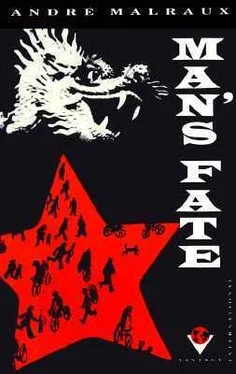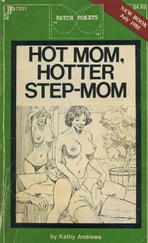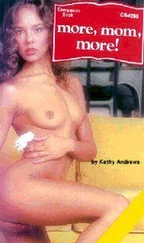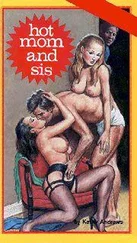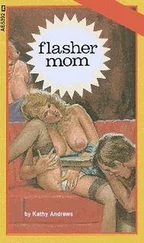Ch’en entered, still dressed as a worker, sat down beside Kyo, looked at the train. His men were on guard behind a barricade, a hundred yards from there, but were not to attack.
The cannon on the train, at a right angle to where they were, moved. Like very low clouds, wisps of smoke from an extinguished fire trailed before it.
“I don’t think they have much ammunition left,” said Ch’en.
The cannon was emerging from the turret like a telescope from an observatory, and was moving cautiously; in spite of the steel-plates the hesitancy of its motion made it appear fragile.
“As soon as our own cannons are there., said Kyo.
The one they were watching came to position, fired In response a volley beat a tattoo against the steel-plates. A clear spot appeared in the gray and white sky, just above the train. A courier brought Kyo some documents.
“We are not in the majority on the committee,” said the latter.
The assembly of delegates secretly united by the Kuomintang party, before the insurrection, had elected a central committee of twenty-six members, of whom fifteen were Communists; but this committee in its turn had just elected the Executive Committee which was going to organize the municipal gove^rnment. There lay the power; there, the Communists were no longer in the majority.
A second courier, in uniform, entered, stopped in the doorway.
“The arsenal has been taken.”
“The tanks?” asked Kyo.
“Off for Nanking.”
“Do you come from the army?”
He was a soldier of the First Division, the one which contained the greatest number of Communists. Kyo questioned him. The man was bitter: they were wondering what the International was good for. Everything was given to the bourgeoisie of the Kuomintang; the families of the soldiers, almost all peasants, were forced to make heavy contributions to the war fund, whereas the bourgeoisie was only moderately taxed. If they wanted to seize the lands, superior orders forbade it. The taking of Shanghai would change all that, the Communist soldiers believed; he, the messenger, wasn’t so sure. With his one-sided information he produced bad arguments, but it was easy to draw better ones from it. The Red Guard, Kyo told him, workers’ militias, would be created in Shanghai; there were more than two hundred thousand unemployed in Hankow. Every minute or two they both stopped, listened.
“Hankow,” said the man, “I know. There is Hankow. ”
Their deadened voices seemed to stick close to them, held back by the quivering air which seemed also to be awaiting the cannon. Both thought of Hankow, “the most industrialized city in all China.” There a new Red army was being organized; at this very hour the workers’ sections there were learning to handle the guns.
Legs apart, fists on his knees, mouth open, Ch’en watched the couriers and said nothing.
“Everything is going to depend on the Shanghai Prefect,” answered Kyo. “If he’s one of us, the majority doesn’t matter much. If he is on the Right. ”
Ch’en looked at the ^me. In this clock-maker’s shop at least thirty clocks, wound up or run down, pointed to different hours. A tattoo of voUeys gathered into an avalanche. Ch’en hesitated to look outside; he could not detach his eyes from that universe of clock-movements, impassive in the midst of the Revolution. The bustle of the couriers who were leaving aroused him: he decided at last to look at his own watch.
“Four o’clock. We can find out. ”
He operated the long-distance telephone, put back the receiver in a fury, turned to Kyo:
“The Prefect is of the Right.”
“First extend the Revolution, and then deepen it. answered Kyo, more as a question than as an answer. “The line of the International seems to be to leave the power here to the bourgeoisie. Provisionally. … We shall be robbed. I have seen couriers from the front: all workers’ movements are prohibited behind the lines.
Chiang Kai-shek has had strikers fired on-after taking a few precautions. ”
A ray of sunlight entered. The blue patch of sky grew larger. The street filled with sun. In spite of the volleys, the armored train seemed deserted in this light. It fired again. Kyo and Ch’en observed it less attentively now: perhaps the enemy was nearer to them. Greatly worried, Kyo was looking vaguely at the sidewalk, which was sparkling under the provisional sunlight. A great shadow fell upon it. He raised his head: Katov.
“Before a fortnight,” he went on, “the Kuomintang wil prohibit our assault sections. I have just seen some Blue officers, sent from the front to feel us out; they slyly insinuate that the firearms would be better off with them than with us. They want to disarm the workers’ guard: they wiU have the police, the Committee, the Prefect, the army and the ^arms. And we shall have made the insurrection for that. We must leave the Kuomintang, isolate the Communist Parry, and if possible give it the power. In this whole matter it’s not a question of playing chess, but of thinking seriously of the proletariat. What do we advise them to do?”
Ch’en was looking athis well-shaped dirty feet, naked in his clogs:
“The workers are right to strike. We order them to stop the strike. The peasants want to take the lands. They are right. We forbid them to.”
“Our slogans are those of the Blues,” said Kyo, “with a few more promises. But the Blues give the bourgeois what they promise them, whereas we do not give the workers what we promise them.”
“Enough,” said Ch’en without even raising his eyes. “First of all, Chiang Kai-shek must be killed.”
Katov listened in silence.
“That’s in the fut’re," he said finally. “At present they’re killing our comrades. Yes. And yet, Kyo, I’m not sure I agree with you, you know. At the b’ginning of the Rev’lution, when I was still a socialist-rev’lutionary, we were all against Lenin’s tactics in Ukraine. Antonov, the comm’ssar down there, had arrested the mine-owners and had given them ten years of hard labor for sab’tage. Without trial. On his own authority as Comm’ssar of the Cheka Lenin congrat’lated him; we all pr’tested. They were real exploiters, y’know, the owners, and several of us had gone into the mines as convicts; that’s why we thought we should be p’rticularly fair with them, to give the example. However, if we had let them go, the prol’tariat would not have understood. Lenin was right. Justice was on our side, but Lenin was right. And we were also against the extr’ordinary powers of the Cheka. We’ve got to think carefully. The present slogan is good: extend the Rev’lution, and afterwards deepen it. Lenin didn’t say right away: ‘The whole power to the Soviets.’ "
“But he never said: Power to the mensheviks. No situation can force us to surrender our arms to the Blues. None. Because then that means that the Revolution is lost, and we have only to. "
An officer of the Kuomintang entered, small, stif, almost Japanese. Bows.
“The army will be here in half an hour," he said. “We’re short of arms. How many can you let us have?"
Ch’en was walking back and forth. Katov was waiting.
“The-workers’ militias must remain armed," said Kyo.
“My request is made in agreement with the Hankow gove^rnment," the officer answered.
Kyo and Ch’en smiled.
“I beg you to find out for yourselves,” he went on.
Kyo worked the telephone.
“Even if the order. ” Ch’en began, in a rage.
“I’ve got them,” Kyo exclaimed.
He was listening. Katov seized the second receiver. They hung up.
“Very weU,” said Kyo. “But the men are still on the firing-line.”
“The artiUery will be here shortly,” said the officer. “We’ll clean up these things. ”
Читать дальше
